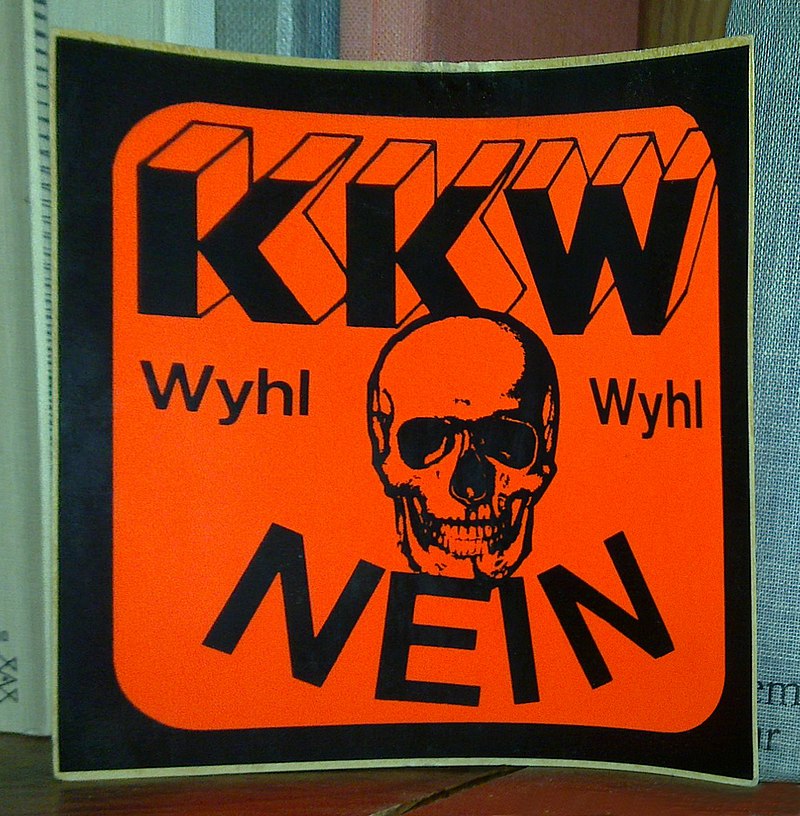The Protest against the Nuclear Power Plant in Wyhl

Civil resistance prevented a nuclear power plant from being built in Wyhl am Kaiserstuhl in the mid-1970s. The broad alliance of demonstrators also included University of Freiburg students, who were thus involved in the German environmental and anti-nuclear power movement from the very beginning.
Around 30,000 people,1 around seven and a half more than the population of Wyhl am Kaiserstuhl today,2 demonstrated on 23 February 1975 against the construction of a nuclear power plant there. It was not the first day of protest, but it was the most momentous: The protesters stormed the site and kept it occupied until November – an unprecedented event in the history of the Federal Republic of Germany.3 With its political and legal repercussions, the resistance in Wyhl is regarded today as the birth of the German environmental and anti-nuclear power movement.4
Diverse social groups gathered in solidarity under the slogan ‘Nai hämmer gsait!’ (Alemannic German for ‘We said, no!’).5 Just as heterogeneous as the protest movement were its motives: While farmers, winegrowers, and craftspeople were concerned about their livelihoods, the middle-class activists were attracted by environmental and nature conservation ideas as well as risk awareness with regard to nuclear energy. The students also wanted to educate people about the dangers of nuclear power with their involvement: An example of this is the writings of the Environmental Protection Working Group.6 Another important aspect for the mostly left-leaning pupils, apprentices, and students was the desire for more democracy and broad political participation. Student Communist organizations from Freiburg had far more extensive ambitions: They aimed for political change, but their efforts remained unsuccessful.7
The participation of Freiburg students in the resistance against the nuclear power plant in Wyhl demonstrates both the university’s roots in the region and its willingness to take on the challenges facing society and help shape solutions.
- https://www.wyhl.de/seite/483435/daten-fakten.html ↩︎
- https://www.wyhl.de/seite/483435/daten-fakten.html ↩︎
- https://www.abendblatt.de/archiv/1999/article204679673/Nicht-in-Wyhl-und-auch-nicht-anderswo.html ↩︎
- https://www.landesarchiv-bw.de/media/full/69706 ↩︎
- https://www.landeskunde-baden-wuerttemberg.de/wyhl?chash=c6f406a07e9ce12c8476a16c4ac4016e&cHash=4bbb7dbaa4492b9b9496b6c2052dcbf0 ↩︎
- https://www.abendblatt.de/archiv/1999/article204679673/Nicht-in-Wyhl-und-auch-nicht-anderswo.html ↩︎
- https://www.landesarchiv-bw.de/media/full/69706 ↩︎